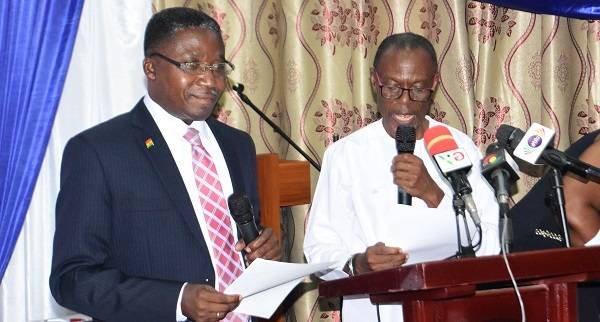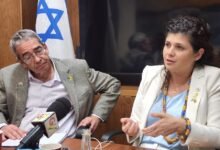
The Council for Scientific and Industrial Research (CSIR) has appealed to the government to do everything possible to fight illegal gold mining as it is posing a great danger to the natural regeneration of native tree species in the country.
According to the Council, Odum, Mahogany, Kokrodua and other valuable native species that give the country timber are getting extinct significantly, particularly due to illegal gold mining, popularly called ‘galamsey,’ in the country.

Even though forests restore themselves, the Council has observed that the activities of illegal gold miners are destroying the natural regeneration of the native trees, making the restoration of degraded ecosystem with such species a difficulty.
Prof. Paul Bosu, Director General of the CSIR said these to the Ghanaian Times during an international training workshop on Sustainable Intensification for Mixed Farming Systems (SI-MFS) Project.
The weeklong training saw forestry experts drawn from Belgium, Italy, Ghana and Senegal.
It was aimed at equipping forestry experts in Ghana to be able to carry out spatial analysis on the suitability of using native tree species in restoration activities within the Savannah Ecological Zone of the country.
Alliance of Biodiversity and International Centre for Tropical Agriculture (CIAT) in collaboration with the Forestry Research Institute of Ghana (CSIR-FORIG) organised the training.
Prof. Bosu indicated that native tree species were the foundation of natural habitats whether in the rain forest, savanna or elsewhere and largely defined the structure and function of each unique ecosystem and the services it provided.
He explained that in restoring degraded ecosystem of any kind, “it is intuitive for one to defer to the use of the native species originally occupying the habitat or area.”
He however, noted, “this may not always come easy as considerable alterations of the original soil and other habitat parameters might have occurred as a result of such illegal activities.”
Realising that forests, trees-on-farm and pastoral systems in the northern Ghana remained the major source of food, fodder, medicine and numerous other critical non-timber forest products that benefited rural communities, Prof. Bosu stressed the importance of ensuring better land management approaches in the country.
“Ensuring better land management approaches that take into account the needs of local people will no doubt lead to an improvement in productivity, reduction in biodiversity loss,mitigation of climate change effects which will ultimately contribute to socioeconomic development in the region,” he underlined.
The Director of CSIR-FORIG, Prof. Daniel A. Ofori, mentioned that by 2050,the world’s population could grow up to 9.7 billion, food demand would be increased by 50 percent and global demand for grains such as maize, rice and wheat could increase by 70 percent and asked how the food and nutrition demand could be met without negative environmental and social consequences.
He said a survey conducted in 2022 in the northern part of Ghana by the CSIR-FORIG and Alliance of Biodiversity and CIAT recorded 1,707 individual tree species on farm maintained for food, fodder,wood for fuel, construction, medicines and other environmental services, and stressed the importance of their protection for the betterment of the country.
Dr Barbara Vinceti of the Alliance for Biodiversity and CIAT said data that had been generated through the implementation of the project would be fed into the development of a global online decision making tool known as the ‘Diversity for Restoration(D4R).’
This, she said,would assist restoration practitioners and policy makers in the selection of suitable tree species for restoration in the savanna landscapes in the country.
“We can make predictions on where to put lot of attention in terms of conservation actions because of loss of diversities,” she underscored.
Mr Nyadia Sulemana Nelson, Deputy Chief Executive Officer, Forestry Commission, thanked the organisers of the programme.
FROM KINGSLEY E.HOPE, KUMASI








